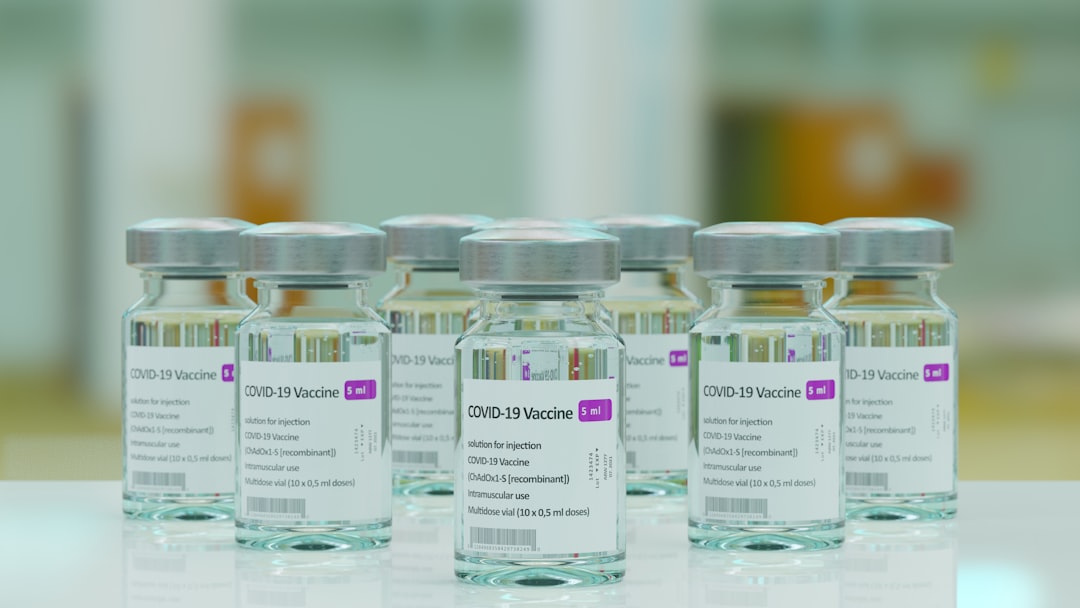ADHD, or Attention Deficit Hyperactivity Disorder, is a neurodevelopmental disorder that affects both children and adults. It is characterized by symptoms such as inattention, hyperactivity, and impulsivity. In children, symptoms of ADHD may include difficulty staying focused, being easily distracted, forgetfulness, fidgeting, and talking excessively. Adults with ADHD may experience similar symptoms, as well as difficulty with time management, organization, and impulsivity.
Diagnosing ADHD can be complex, as there is no single test that can definitively diagnose the disorder. Instead, healthcare professionals rely on a thorough evaluation of the individual’s symptoms, medical history, and behavior. This may involve gathering information from parents, teachers, and other caregivers, as well as using standardized assessment tools to assess the presence and severity of ADHD symptoms. It is important to note that ADHD can coexist with other conditions such as anxiety, depression, and learning disabilities, which can further complicate the diagnostic process. Overall, a comprehensive evaluation is essential to accurately diagnose ADHD and develop an appropriate treatment plan.
ADHD is a complex disorder that can present differently in each individual. It is important to recognize the symptoms and seek professional evaluation to receive an accurate diagnosis. By understanding the symptoms and diagnostic process of ADHD, individuals and their families can better navigate the treatment options available to them.
The Debate: Medication vs. Alternative Treatments for ADHD
The debate over the use of medication versus alternative treatments for ADHD has been ongoing for many years. Medication, such as stimulants and non-stimulants, is often prescribed to manage the symptoms of ADHD and has been shown to be effective for many individuals. However, some people are concerned about the potential side effects and long-term impact of medication on individuals with ADHD. As a result, alternative treatments such as behavioral therapy, dietary changes, and exercise have gained popularity as non-pharmacological approaches to managing ADHD symptoms.
Behavioral therapy, in particular, has been shown to be effective in helping individuals with ADHD develop coping strategies and improve their executive functioning skills. This type of therapy focuses on teaching individuals how to manage their symptoms through techniques such as organization, time management, and problem-solving. Additionally, dietary changes and exercise have been suggested as potential ways to support overall brain health and improve ADHD symptoms.
Ultimately, the debate between medication and alternative treatments for ADHD is complex and multifaceted. It is important for individuals with ADHD and their families to work closely with healthcare professionals to explore all available treatment options and make informed decisions about the best approach for managing their symptoms.
The Effectiveness of ADHD Medication
ADHD medication, particularly stimulants such as methylphenidate and amphetamine-based medications, has been widely used to manage the symptoms of ADHD. These medications work by increasing the levels of neurotransmitters in the brain, which can help improve attention, focus, and impulse control. Research has shown that stimulant medications are effective in reducing the core symptoms of ADHD in many individuals, leading to improved academic performance, social functioning, and overall quality of life.
Non-stimulant medications, such as atomoxetine and guanfacine, are also available for individuals who do not respond well to stimulant medications or experience intolerable side effects. These medications work differently than stimulants but have been shown to be effective in managing ADHD symptoms in some individuals.
It is important to note that while medication can be effective in managing the symptoms of ADHD, it is not a cure for the disorder. Additionally, not all individuals with ADHD will respond to medication in the same way. Therefore, it is essential for healthcare professionals to carefully monitor the individual’s response to medication and make adjustments as needed to ensure optimal symptom management.
Potential Risks and Side Effects of ADHD Medication
While ADHD medication can be effective in managing symptoms, it is important to be aware of the potential risks and side effects associated with these medications. Stimulant medications, for example, can cause side effects such as decreased appetite, weight loss, insomnia, and increased heart rate. In some cases, individuals may also experience more serious side effects such as high blood pressure or mood changes.
Non-stimulant medications also carry potential risks, including drowsiness, dizziness, and increased heart rate. Additionally, some individuals may experience allergic reactions or liver problems while taking non-stimulant medications.
It is important for individuals with ADHD and their families to work closely with healthcare professionals to monitor for potential side effects and make informed decisions about medication management. Healthcare professionals can provide guidance on how to manage side effects and when to seek medical attention if necessary. By being aware of the potential risks and side effects of ADHD medication, individuals can make informed decisions about their treatment plan.
The Role of Behavioral Therapy in ADHD Treatment
Behavioral therapy plays a crucial role in the treatment of ADHD by providing individuals with practical strategies to manage their symptoms and improve their overall functioning. This type of therapy focuses on teaching individuals how to develop organizational skills, time management techniques, and problem-solving strategies to better navigate daily challenges associated with ADHD.
Cognitive-behavioral therapy (CBT) is a specific type of behavioral therapy that has been shown to be effective in helping individuals with ADHD develop coping skills and improve their executive functioning abilities. CBT focuses on identifying negative thought patterns and behaviors and replacing them with more positive and adaptive ones. This can help individuals with ADHD better manage their symptoms and improve their overall quality of life.
In addition to CBT, other forms of behavioral therapy such as parent training and social skills training can also be beneficial for individuals with ADHD. Parent training can help parents learn how to effectively manage their child’s behavior at home, while social skills training can help individuals with ADHD improve their interpersonal relationships and communication skills.
Overall, behavioral therapy plays a critical role in the comprehensive treatment of ADHD by providing individuals with practical strategies to manage their symptoms and improve their overall functioning.
Individualized Treatment Plans for ADHD

Given the complex nature of ADHD and its varied presentation in different individuals, it is essential to develop individualized treatment plans that address each person’s unique needs and challenges. Treatment plans for ADHD should take into account factors such as age, coexisting conditions, severity of symptoms, and individual preferences.
For many individuals with ADHD, a combination of medication and behavioral therapy may be the most effective approach to managing symptoms. However, some individuals may respond well to non-pharmacological treatments such as dietary changes or exercise interventions. It is important for healthcare professionals to work closely with individuals with ADHD and their families to develop a treatment plan that aligns with their specific needs and goals.
Regular monitoring and adjustments to the treatment plan may also be necessary as the individual’s needs change over time. This may involve regular follow-up appointments with healthcare professionals to assess treatment response and make any necessary modifications to the treatment plan.
By developing individualized treatment plans that take into account each person’s unique needs and preferences, healthcare professionals can help individuals with ADHD effectively manage their symptoms and improve their overall quality of life.
The Importance of Regular ADHD Testing and Monitoring
Regular testing and monitoring are essential components of managing ADHD effectively. This involves ongoing assessment of the individual’s symptoms, treatment response, and overall functioning to ensure that the treatment plan remains appropriate and effective.
Testing for ADHD may involve standardized assessment tools such as rating scales or questionnaires that measure the severity of symptoms related to inattention, hyperactivity, and impulsivity. These assessments can provide valuable information about the individual’s symptom severity and treatment response over time.
In addition to regular testing, monitoring the individual’s response to medication or behavioral therapy is crucial for making any necessary adjustments to the treatment plan. This may involve tracking changes in symptom severity, side effects of medication, or progress in developing coping strategies through behavioral therapy.
Overall, regular testing and monitoring are essential for ensuring that individuals with ADHD receive appropriate care that aligns with their specific needs and goals. By staying proactive in testing and monitoring for ADHD, healthcare professionals can help individuals effectively manage their symptoms and improve their overall quality of life.
FAQs
What is ADHD?
ADHD stands for Attention Deficit Hyperactivity Disorder, which is a neurodevelopmental disorder that affects both children and adults. It is characterized by symptoms such as inattention, hyperactivity, and impulsivity.
What are the treatment options for ADHD?
The treatment options for ADHD include medication, behavioral therapy, and lifestyle changes. Medication options typically include stimulant medications such as methylphenidate and amphetamine, as well as non-stimulant medications like atomoxetine and guanfacine.
Should ADHD be treated with medication?
The decision to treat ADHD with medication should be made on a case-by-case basis, taking into consideration the individual’s specific symptoms, medical history, and preferences. Medication can be an effective treatment for managing ADHD symptoms, but it is not the only option and should be carefully considered in conjunction with other treatment approaches.
What are the potential benefits of treating ADHD with medication?
Medication can help improve attention, reduce hyperactivity, and decrease impulsivity in individuals with ADHD. It can also help individuals better manage their symptoms and improve their overall quality of life.
What are the potential risks of treating ADHD with medication?
Some potential risks of ADHD medication include side effects such as decreased appetite, sleep disturbances, and increased heart rate. There is also a potential for misuse or abuse of stimulant medications, so it is important for individuals to be closely monitored while taking these medications.
Are there alternative treatments for ADHD besides medication?
Yes, there are alternative treatments for ADHD besides medication, including behavioral therapy, cognitive-behavioral therapy, and lifestyle changes such as regular exercise, a healthy diet, and adequate sleep. These approaches can be used alone or in combination with medication to effectively manage ADHD symptoms.














